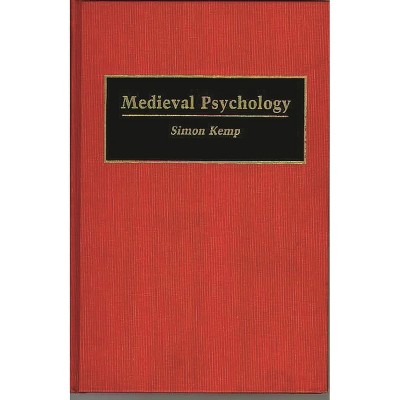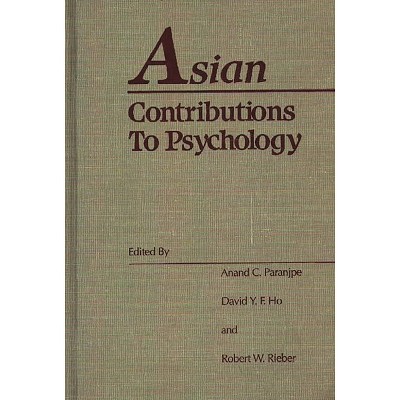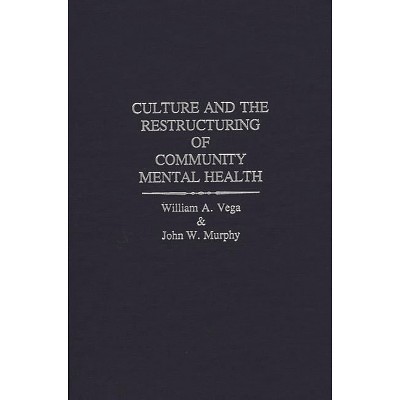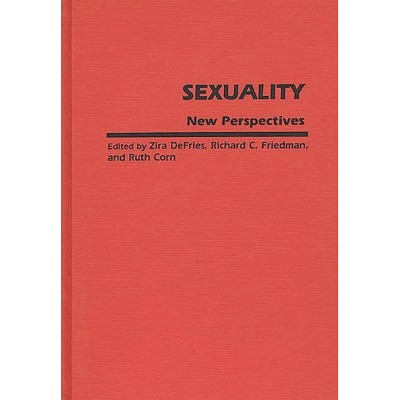Sponsored

Post-Soviet Perspectives on Russian Psychology - (International Contributions in Psychology) (Hardcover)
In Stock
Sponsored
About this item
Highlights
- The study of psychology for the uses of the state, for industrial/labor purposes, for dealing with individual and ethnic tensions has a long history in Russia.
- About the Author: VERA A. KOLTSOVA is Head of the Laboratory of the History of Psychology and Historical Psychology of the Institute of Psychology of the Russian Academy of Sciences.
- 352 Pages
- Psychology, History
- Series Name: International Contributions in Psychology
Description
About the Book
The study of psychology for the uses of the state, for industrial/labor purposes, for dealing with individual and ethnic tensions has a long history in Russia. With the collapse of the Soviet Union, Russian psychologists and scholars of the discipline from outside Russia have had the opportunity to reexamine the directions the discipline took as well as the directions likely to result from the new academic and political environments. This volume brings together many of the leading figures in contemporary Russian psychology, who show how the discipline got to where it is and examine what may result in the future.
The volume begins with essays examining historical background; next the writers look at the period from 1985-1994 and its impact on research opportunities. This discussion is followed by a review of the major theoretical viewpoints and issues in contemporary Russian psychology. By bringing together many of the leading figures in Russian psychology, readers and researchers in psychology have a unique insight into the state of the discipline and its likely future directions.
Book Synopsis
The study of psychology for the uses of the state, for industrial/labor purposes, for dealing with individual and ethnic tensions has a long history in Russia. With the collapse of the Soviet Union, Russian psychologists and scholars of the discipline from outside Russia have had the opportunity to reexamine the directions the discipline took as well as the directions likely to result from the new academic and political environments. This volume brings together many of the leading figures in contemporary Russian psychology, who show how the discipline got to where it is and examine what may result in the future.
The volume begins with essays examining historical background; next the writers look at the period from 1985-1994 and its impact on research opportunities. This discussion is followed by a review of the major theoretical viewpoints and issues in contemporary Russian psychology. By bringing together many of the leading figures in Russian psychology, readers and researchers in psychology have a unique insight into the state of the discipline and its likely future directions.Review Quotes
?Important and unique....The book is "bible-like" as it presents the perspectives of a substantial and diverse group of contributors, Russian and non-Russian, men and women, older and younger writers....Widely diversified also is the content....Unquestionably, the translators and the American editors made a determined effort to make the volume both informative and readable....The volume is a welcome addition.?-Contemporary Psychology
?The colleciton of papers in this book provides background information on the history of Russian psychology not found in other works....An invaluable orientation for those American students and scholars initiating contacts with psychologists from Eastern Europe. Highly recommended as a reference book for libraries serving the general public, as well as academic libraries.?-Choice
"The colleciton of papers in this book provides background information on the history of Russian psychology not found in other works....An invaluable orientation for those American students and scholars initiating contacts with psychologists from Eastern Europe. Highly recommended as a reference book for libraries serving the general public, as well as academic libraries."-Choice
"Important and unique....The book is "bible-like" as it presents the perspectives of a substantial and diverse group of contributors, Russian and non-Russian, men and women, older and younger writers....Widely diversified also is the content....Unquestionably, the translators and the American editors made a determined effort to make the volume both informative and readable....The volume is a welcome addition."-Contemporary Psychology
About the Author
VERA A. KOLTSOVA is Head of the Laboratory of the History of Psychology and Historical Psychology of the Institute of Psychology of the Russian Academy of Sciences.
YURI N. OLEINIK is Dean of the faculty of psychology of the Youth Institute in Moscow and senior scientist of the Laboratory of the History of Psychology and Historical Psychology, Russian Academy of Sciences. ALBERT R. GILGEN is Professor of Psychology at the University of Northern Iowa and a Fellow of the American Psychological Association, the American Psychological Society, and the American Association of Applied and Preventative Psychology. His most recent book is Chaos Theory in Psychology coedited with Frederick David Abraham (Greenwood Press, 1995). CAROL K. GILGEN has a background in Russian and political science./e She is the coeditor, with her husband Albert Gilgen, of the International Handbook of Psychology (Greenwood Press, 1987).Shipping details
Return details
Frequently bought together

Trending Non-Fiction
















